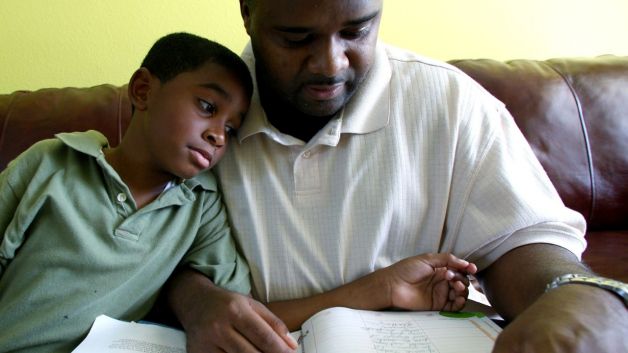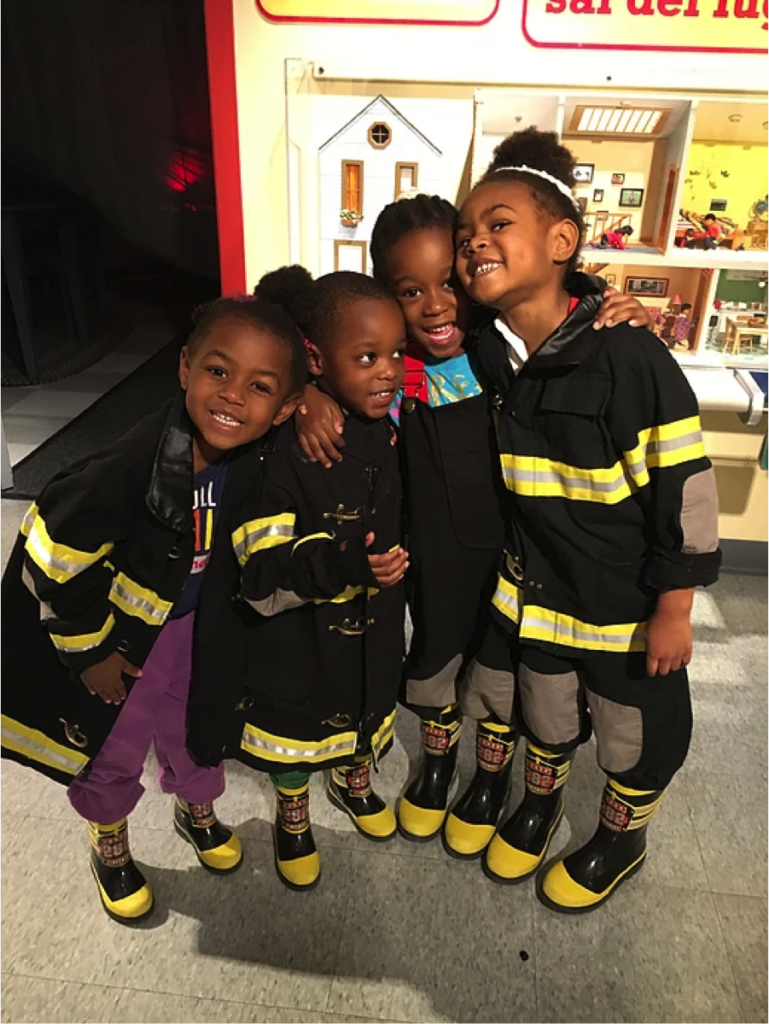You are Black, or a person of color. You live in Chicago, America’s third-largest city. And suddenly you’re homeschooling! How on earth did this happen?
The Coronavirus pandemic has caused school districts all over the country to cease from their regular classroom rhythm. Homework packets, online learning, and lots and lots of time at home have quickly taken over for the regular rhythm of get up and go to school. And we all have our kiddos all day, every day!
Of course, we know that the onset of mandatory homeschool is not the most significant thing happening in the world right now. The economy has ground to a virtual standstill and many people are out of work. Churches, like the one I pastor, and other faith communities can’t gather for healing and inspiration. And far more devastating is the fact that many people in our city, our nation, and our world are sick and dying.
But as I scroll my timeline and talk to my parishioners and friends, one thing is abundantly clear: for parents who were not planning to join the homeschool community this year, the struggle is real.
And since my wife and I have been homeschooling in Chicago for almost nine years now, I feel it is my civic responsibility to offer some advice.
Yes, You Can, And You Don’t Have to Go It Alone
#1: You CAN do this!
I know that there are some people sounding the “parents are not teachers” alarm. They think that every minute a child spends with her parent is a minute wasted, at least where learning is concerned. Let me assure you, the data don’t support that argument.
Let me share some facts that may surprise you. Overall, children with homeschool experience typically score 15 to 30 percentage points higher on standardized tests than students who have only been educated in traditional public schools. A 2015 study found that Black homeschoolers outscored Black public school students by a range of between 23 and 42 percentage points. “Homeschool students score above average on achievement tests regardless of their parents’ level of formal education or their family’s household income.”
Ok. I’m going to repeat that last part. “Homeschool students score above average on achievement tests regardless of their parents’ level of formal education or their family’s household income.”
How is that possible, you might ask? You see, most homeschooling families don’t go it alone. We build communities of support like the one my wife leads on the southside. We tap skilled educators for general guidance and specialized intervention. Some of us have college degrees. Many of us don’t. But, we love our children and we know them. And like you, we do what we have to to do make sure they get what they need.
I know that it can be challenging, and you may not want to homeschool. But, right now, you have to do this. And you CAN! The support is out there.

Homeschool Doesn’t Mean Putting A CPS Classroom in Your Home
#2: Homeschool Is Not What You Think
I had a conversation with a dad-friend whose children attend Chicago Public Schools. He’s pretty on top of things, so he’s been there for the whole “longer school day” conversation. I saw another friend post on social media about not understanding how homeschooling families “stay in the house all day.”
Homeschool won’t work if you think of it taking a CPS classroom and placing in your living room. No shade on CPS classrooms….but the homeschool environment is pretty different.
First, it shouldn’t take as long. Trust me, CPS would not need a 6-8 hour day if the class sizes ranged from 1 to 6 students. Most of the time we only spend half of the day on “learning time” in our house (our little ones are ages two through nine).
This blog is helpful for thinking about how to structure your homeschool day. The most important thing is to find a routine that works for you. Homeschool is more about rhythms than schedules.
As experienced homeschoolers, being stuck in the house all day for homeschool has been a HUGE adjustment for us. In fact, I think traditional school students may find that part a little bit easier. At least they are used to being inside of a building.

One of the most precious things to me about homeschooling is that the entire city is our classroom. Our kids are always outdoors, or in my office, in a museum, or a library, or enjoying one of the seemingly infinite number of cultural experiences this city has to offer.
Of course, right now we have to stay home in order to protect ourselves and others. But, my advice is to find some time to get out of the house. Be safe, but get some sun and fresh air.
Let Teachers Say Whatever on Social Media. They Still Love Your Kid.
#3: Your child’s teacher loves them, no matter what they say on social media.
As a homeschooler and a pastor of several school teachers, I often find myself serving as a confidant for classroom teachers. And let me assure you that my wife and I did not opt for homeschooling to keep our kids away from the teachers. I am often inspired by the depth of love and true devotion that my teacher friends and church members demonstrate. By and large, our city’s teachers love our city’s children….period.
If you see a teacher on social media speaking in jest about the new plight of parents who have to be at home with their children, remember two things. First, many of these teachers twist themselves into knots trying to get parents to engage with them during the regular school year (You might even reflect on your own level of engagement pre-coronavirus). Second, remember that teachers are still working really hard (if not harder) to make sure that you and your children have the resources and support necessary to see your child succeed.
I love my job….but sometimes I complain about it. You probably do too.
Our teachers are so amazing that they can seem superhuman. But, they are people too. Great people. As parents, we should cut them slack.
This Is Not the Moment to Turn Inward
#4: There are families in your community who need you.
One thing that I always try to remind homeschool families is that it is bad form to turn completely inward and start thinking only about yourself and your family. Just because your child is not in school with “all of the other children,” does not mean that you are not a part of the community. In fact, as a homeschooling household, we are intentional and proactive about trying to find ways to connect with our neighbors, our extended family, our church community, and our friends.
No matter how hard things may seem for you, there is always someone else who would love to be in your position. Remember that some of your children’s friends don’t have a place to live….or live in a place is not safe. They may be sheltered-in-place in a place where no one really wants to be. The City of Chicago has a website that lists lots of resources that can be helpful to families in need during this time. You might even consider using this helpful script to do well-being phone calls to people you know.
The Lessons We Learn Today Could Make Tomorrow Brighter for Our Kids
#5: We just might be onto something here.
I’m a homeschool dad. But, I’ve spent a big chunk of my career working to improve the quality of education for every child. And when I think about some of the big issues that we face in our broader system–like funding, parent engagement, teacher support and development, and personalized learning–I can’t help thinking that this crisis has forced us to innovate in ways that could begin to address some of these problems.
For the past three weeks, Chicago Public Schools has reoriented itself. Instead of viewing itself as the primary educator and care-taker of 400,000 students, the district has become a facilitator and backbone support for homes and communities around the city. They’re providing lunches, delivering laptops and tablets, and advocating with internet and mobile phone providers for more equitable access to the web.
Teachers have also reorganized. Since parents became the “classroom teachers,” I have observed a burst of educational entrepreneurship. Teachers are not only working with their classroom students for an online session, but they are also going live on Facebook and Instagram sharing what they know about helping children succeed. By standing up to create online learning environments with virtually no notice, our teachers have shown us there is a wealth of innovation in their ranks that needs to be unleashed for the benefit of our students.
Finally, parents and communities have shown that while “homeschool for every child” is probably not a sustainable vision for the future, we can shoulder a little more of the load. Imagine if teachers and administrators had a full day every week to planning, data analysis, and team building. That would drastically improve the quality of our schools. And guess what, we could give it to them with just one “homeschool day” each week.
Ok….I know I’m pushing it….but think about it.
My point is simply this. Homeschooling is not the end of the world. You can totally do it for the weeks that we need to shelter-in-place for public health reasons. And hey….this may just be the beginning of a brave new world with better education outcomes for all.
_________________
This article was first posted on chicagounheard.org









